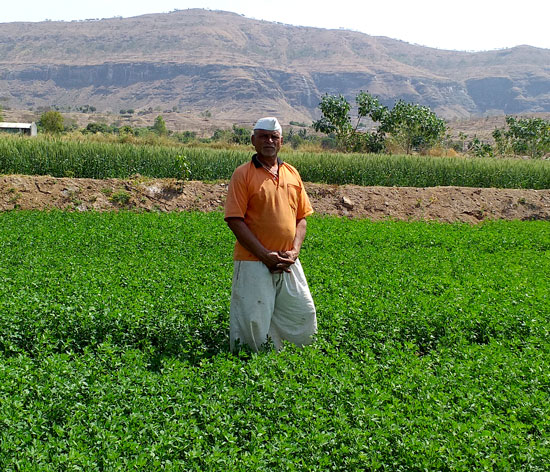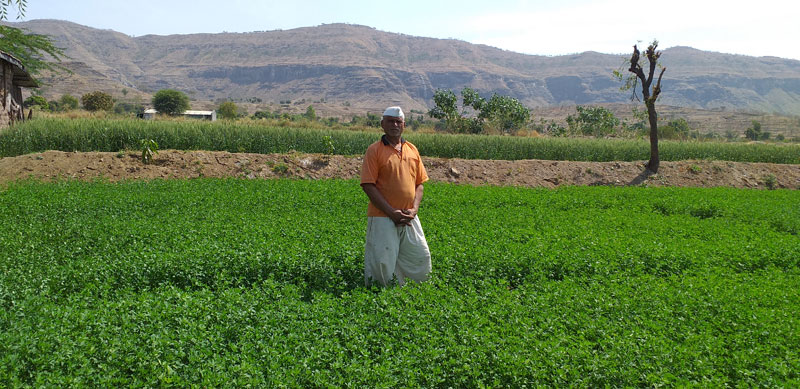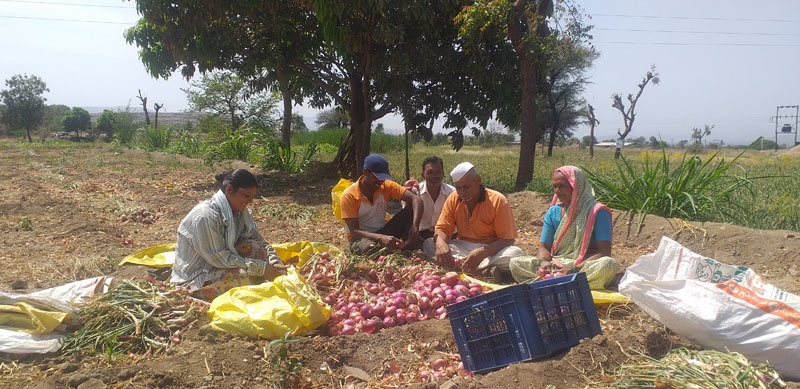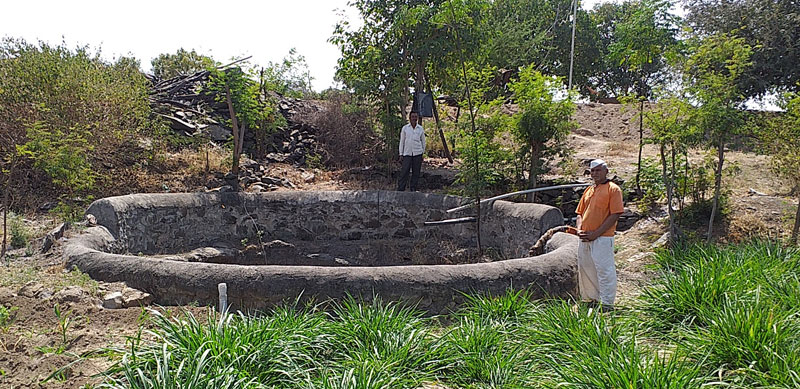
Babaji Walve is the owner of 3.5 acres of agricultural land in Mirzapur village, Maharashtra. However, the high moorum content and the lack of silt made it less productive than it could have been. It was then that he heard about the Government of Maharashtra’s Gaalmukt Dharan Gaalyukt Shivar Yojana (GDGS).
Reservoirs, whether natural or artificial, play an important role in water security in many parts of India. These water reservoirs recharge groundwater, provide drinking water for people and livestock and help in agriculture. Nearly two-thirds of India’s irrigation tanks have been built in Maharashtra alone. However, if these reservoirs are not regularly desilted, they tend to fall into disuse and can no longer be depended upon to provide water.
The Government of Maharashtra initiated the GDGS scheme to revitalise small dams and reservoirs and rejuvenate their utility. The scheme, implemented by the Tata Trusts under its Tata Water Mission with its NGO partners Yuva Mitra and Lokpanchayat, worked to desilt tanks and reservoirs, helping to increase not only their capacity to recharge ground water but also to provide water for a longer duration during the summer months.
The silt removed from the tanks also helps to rejuvenate soil in the area, thus reducing the need for fertilisers almost by half. For Babaji and other farmers like him, this situation is a win-win: they not only increase the productivity of their land, but also reduce the cost of fertilisers.
Babaji, whose interest was sparked by what he’d heard about the scheme, took a loan from his relatives to invest Rs3.28 lakh to transfer and dump the silt from the reservoir sites onto his land. He paid an extra Rs20,000 for levelling the soil. Within a year, his first crops of onion, bajra, jowar, groundnut, ginni grass and wheat on this newly productive land netted him an income of Rs2 lakh from the now-productive land. “I looked at it [the money he spent] as a one-time investment,” says Babaji. “I’m confident that my returns will only improve in the coming years.” Babaji also believes that this initiative can be implemented on a larger scale to bring about lasting change in the area.



